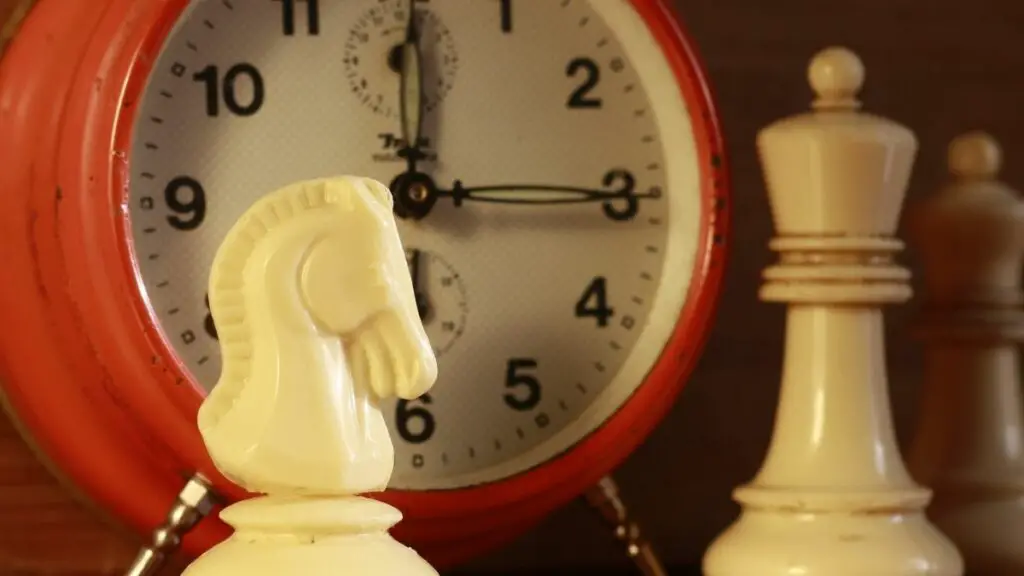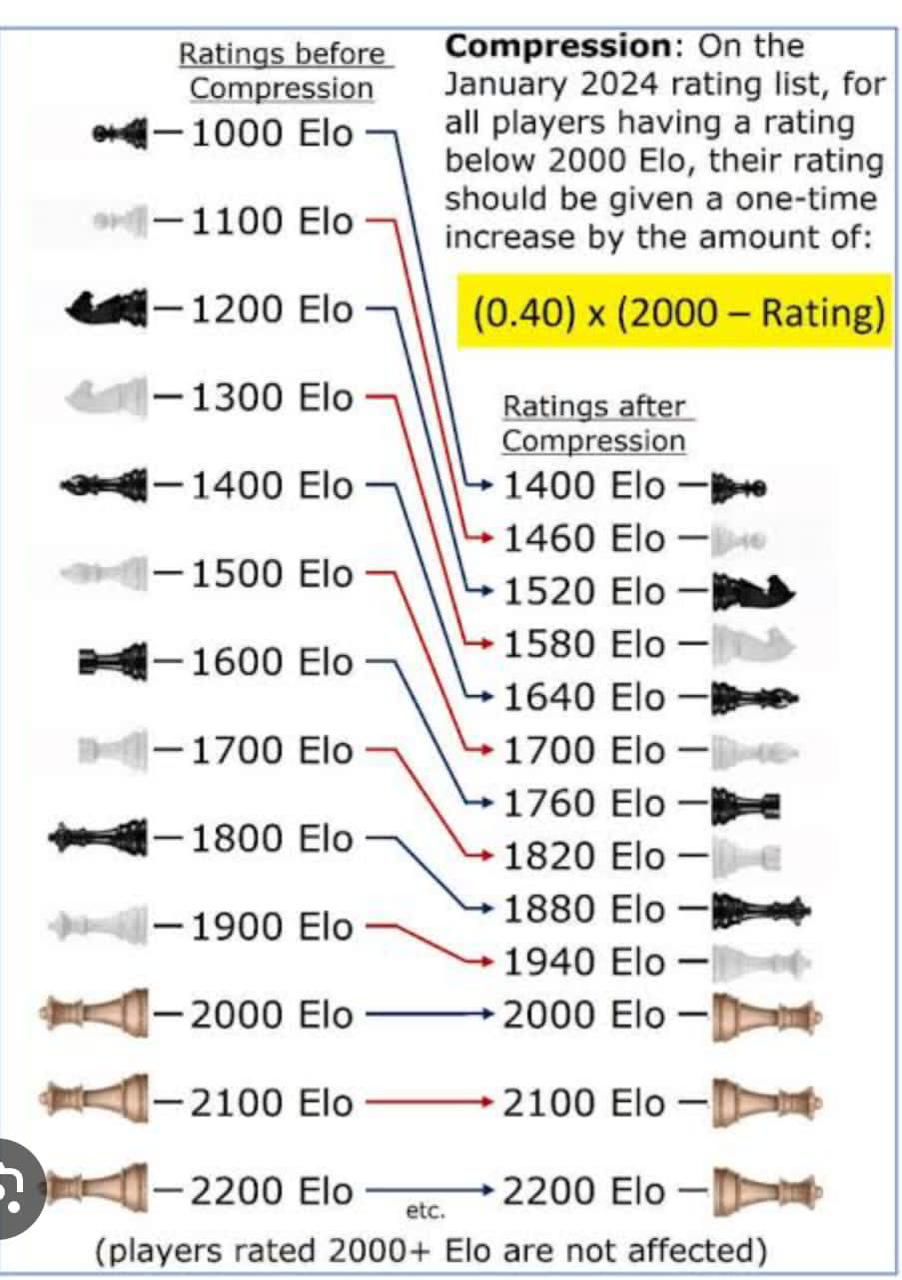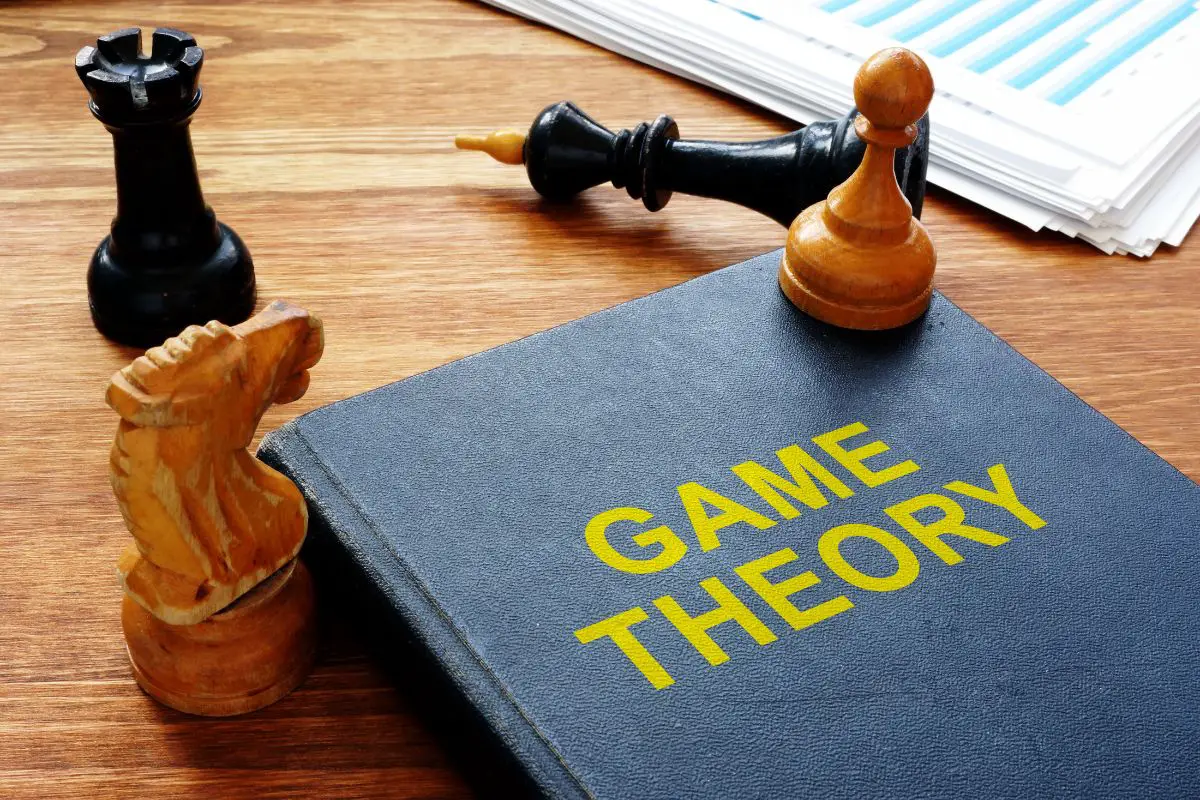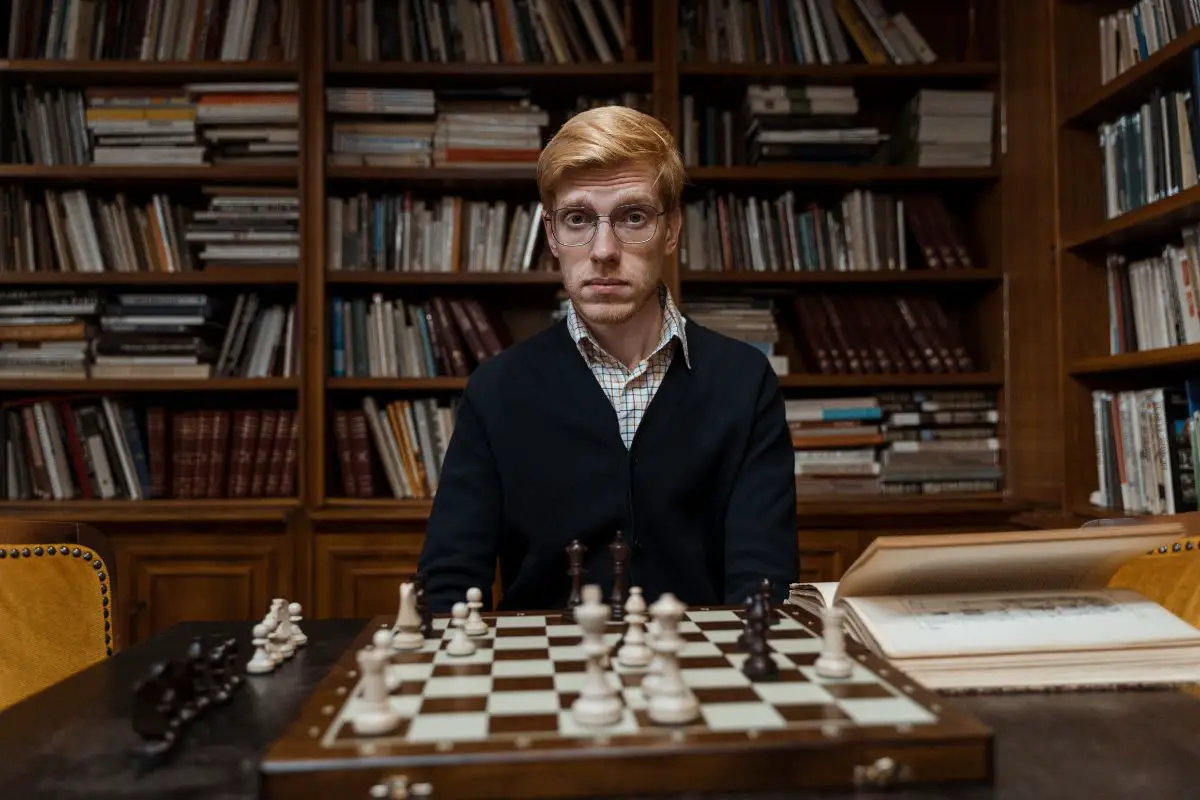
Life is like a game of Chess. Every decision we make can either bring an advantage or a disadvantage. Even acting upon the wisest decision can yield a negative outcome. The chess pieces must keep moving as our life also moves ahead.
Chess is not only a game, but it is a way of life. Chess resonates with our real life in many ways. Many people are unaware of the valuable lessons in and about life that playing Chess can teach us. Chess is a game of the decision-making process in a short time under pressure, calculation, creativity, evaluation, analysis, strategy, and continuous performance development, among others.
Here are the 15 life lessons from chess:
- Teaches to get creative
- Helps to make quick decisions
- We should learn to lose at times.
- Sometimes bluffing is a blessing.
- Flexibility
- Sacrifice is necessary
- Spot the patterns
- Think big and outside the box
- Grab the right opportunity
- Be confident and stand for your plans.
- Be aggressive and take action.
- Chess teaches us to have a strategy.
- Chess teaches us to have a plan B and Plan C
- You have to see the big picture.
- It teaches us to make the right move from the beginning.
- Chess teaches us not to let our emotions guide our actions
- Chess teaches us to know the system.
- Chess teaches us never to get too comfortable.
- Have Fun
So, check out some of the greatest life lessons from Chess in detail below:
Teaches to get creative
When someone plays Chess as a beginner, it would not be hard for them to find ways to attack. But if they are good and do not make any mistakes, there would not be any other way of doing that. Hence, one has to be creative in their game plan.
One of the many benefits of Chess is that it can make someone more creative. It has proven to improve the thinking patterns in both hemispheres of the brain and helps it to think logically and be creative at the same time.
In Chess, we get creative by finding the chances where obvious ones do not exist. We have to keep our thought processes out of the box to reach a destination where one needs to have another great reason to play Chess. So we become more creative and better at our game with time. We need to develop new plans at every move, and without being creative, we cannot make new plans. In life, also we have to be clever enough to succeed in our goals.
Helps to make quick decisions
In Chess, we need to analyze our position before making our move carefully. But we have to be decisive. We have to make that move, formulate the strategy and commit to it. If the players are too slow with their earlier actions, they will have to rush with their later ones. And when the clock gets down to zero, they will lose the game. So apart from teaching us to make calculated moves, Chess teaches us to be decisive in making them.
There is a fixed time for playing the game. Sometimes towards the end, we run out of time, and in that short time, we need to decide which movie we should make. Sometimes it is necessary to make decisions within a fraction of a second. We may win the game only if we make the right decision within a short time. Sometimes in our life when we need to make quick decisions. The better decisions we make within a short time, the better life we lead.
It was also found that chess players are smart and studies show that chess players are good at maths as well. This is one of the major advantages, acquired from the game of chess.
We should learn to lose at times
There is no game in which a player does not lose. Chess is no exception. It is okay to lose a game in Chess, but the most important is what we learn from our mistakes. Chess and life are similar. Sometimes in life, we fail at times, but we should focus on analyzing our mistakes and learning from them. We must remember we never lose anything; either we win or learn from our mistakes.
Sometimes bluffing is a blessing
In Chess, we may need to act like we can win the game, although we are in a losing position. It is like bluffing the opponent emotionally. This confidence throws many people off and can even make them feel uncomfortable. However, we can use it according to our advantage. The same thing goes on in our life; it’s okay to put on an emotional mask to bluff others at times to make ourselves feel better than them.
We make it look as if we are about to make one move and our opponent prepares to defend themselves, and that is when we move in to make our actual attack. A different one that our opponent overlooked.
The art of making up a bluff or a faint is one thing chess teaches us time and again, even when we do not think of people as actual enemies. When we are negotiating to do the unexpected and catch our partners off guard is something that can put us in an advantageous position.
Flexibility
We can never be rigid in planning a game of Chess. We may need to make changes based on the opponent’s movement in every move. Flexibility in planning is the utmost for playing Chess. The same thing goes with life. Things may never go according to our plan, and the people surrounding us are unpredictable. Remaining flexible is an invaluable life lesson that we learn from Chess. The less rigid we are in life, the better we will be able to handle situations thrown in our way.
Good chess players will watch their opponents, react to attacks, and how their moves fit into a bigger plan. Then, finally, they get in their opponent’s head.
To understand our enemy, we must become our enemy first. Of course, we do not necessarily have out-and-out enemies for those who aren’t soldiers or mafia bosses. But when we are negotiating, asking for an appraisal, or trying to outsmart a business competitor, it is a massive advantage if we get inside the head of our sparring partner. It is good if we get to know what their goals are, what makes them tick, and what their weak points are. Doing this will help take advantage of the chessboard and negotiating table.
Sacrifice is necessary
First-time chess players tend to lose a piece; it is terrible. They might be okay about losing a pawn, but losing a bishop or a knight is significant. Experienced players have a more nuanced attitude. They know that they have to lose battles to win the war.
In life, people without a strategic mindset often complain about losing a weekend or an evening to work or study or something that will cost them too much, and they do not realize it will bring them long-term gains. On the other hand, successful people will invest and make sacrifices because they know it fits into a bigger plan and is worth the sacrifice. The same principle applies when we walk away from the chessboard. Sacrifice is necessary for our life. Without sacrificing, we may never get what we want or need to make our lives happier.
Spot the patterns
There are many things in life that can help us, like doing detective work and finding the source of that problem bugging us. For example, spotting the signs of a business plan is about to run into trouble, such patterns we can learn from the game of Chess.
Patterns are everywhere, and the better we spot them, the better we become. The same skill is used in Chess to identify the patterns and moves the opponent makes. We are in an advantageous position to predict the action when we notice ways. We may even find mistakes in their game just by noticing their patterns. We may use this skill in real life by seeing our neighbourhoods practice. The more we can detect others’ patterns, the better we deal with them.
Think big and outside the box
The most successful people are always two steps forward or well ahead of the game in life. They are organized, can anticipate problems, and know how to deal with them well before they occur. Poor players think about their next move. Great players like Garry Kasparov has many activities in their mind ahead, and playing Chess can give that forward-thinking mindset. It can help to apply it to all aspects of life.
Chess trains us to think ahead of our time and out of the box. Our plans come from the game, and we need better solutions to stay in the game. We have to think many moves ahead in Chess. It is also a skill we will repeatedly need in life. Judging from a different angle helps us find solutions to our problems in ways that others may not believe.
Grab the right opportunity
During the chess game, whenever we get an opportunity to take our opponent’s piece, which makes our position better, we must take it. We should not miss any opportunity which comes our way. So when we get an option, we should not wait. This principle is used in Chess every time. The same goes for life. If we get an opportunity, either big or small, we should not let it go during our lifetime. We must take it and run along with it.
Be confident and stand for your plans.
We need to be confident in the moves we make. Chess is about creating concrete actions and sticking to them. In life, if we plan or do something, we must stand on our ground and fight for what we think is best for us.
Be aggressive and take action
A novice chess player may put all their effort into defending, but you need to attack to get ahead. Nobody will win a chess game just by keeping their players safe while doing nothing to trap their opponent’s King. Just like in life, we have to be a go-getter. Even a little more aggressive sometimes in getting what we want. Get out of our comfort zone, and act like an attacking chess player, not a defending one.
When there is a problem or threat in Chess, we need to be aggressive and take action. We either make a wise move for defence or make a strong attack. It applies in life as well. Sometimes we have to be aggressive and take things into our hands to change something or make a difference. Nobody wants to let life pass by without going after what they want.
Chess teaches us to have a strategy
Learning the rules of the chess game is easy, but that would not help to win matches. But, of course, it would help when we had a strategy, and life is pretty much the same. But, in life, you can take it as it comes, get a job, earn money, spend it according to your needs and repeat.
When you have ambitions, prioritize things you want to achieve professionally and personally, make a bucket list of places to travel, and experiences to enjoy. You will get a lot more out of life when you have a strategy.
Chess teaches us to have a plan B and Plan C
In Chess, we can have a brilliant strategy to beat our opponent, but if they make moves you do not want them to, it can all come crashing down to nothing. It would help with a backup plan B and even C, as Plan A does not work. In life, we all know things do not go according to plan. Hence, successful people have several alternatives they consider to reach their destination.
You have to see the big picture
In Chess, there is a rule of seeing the whole board; in life, it’s seeing the big picture. When we are inexperienced, we may get stuck on that one move we make to win the game. But we are so focused on them that we have missed something that is staring us right in our face. We notice it only when we see it once our opponent moves in and turns the tables on us.
So, we need to start to see the whole board. The same goes with life; there are times when we can not see the wood from the trees, like when we are so engrossed in doing the same job each day that the opportunities pass by without our notice. But, we can also overlook loopholes in our business plan that we did not see its fatal flaws. So, like a good chess player, avoid mistakes and blind spots and learn how to see the whole picture.
It teaches us to make the right move from the beginning.
The first few minutes do not bear much on the final result in games like soccer, but everything counts from the first move in Chess. That first move has consequences shaping how the board will look and how the rest of the game will go.
Chess teaches us to get things right from the very start, and it’s got all kinds of similarities to life. So, for example, research shows that when we meet somebody for the first time, their impression of us will be of the first seven seconds. Likewise, when setting up a company, we will probably struggle for cash in the early days, so we need to make the right moves. But, just like a good chess player, understand the first move that counts in life.
Chess teaches us not to let our emotions guide our actions
In Chess, there is a moment when we are so excited about our win or taking an important piece off our opponent that we fail to notice there is a trap set for us. The excitement gets in the way of our judgment. Good chess players know to control their emotions.
Chess teaches us to know the system
Whatever we are doing in life involves a system of rules, possibilities for action, and likely outcomes. For example, there will be a legal system for operating the company when setting up a business. The method of economics comes from the concept of supply and demand, the design of marketing, or how we will make people hear about us.
And, if we deal with people, we will be working with a system of human psychology too. So whatever plans we are working within, know them in minute details like a pro chess player. Take the move that we are hugely improving our chances of success.
Chess teaches us never to get too comfortable
In Chess, it is all too common for a player to have the advantage and then get comfortable and lose the edge and then the game. Here the game is in constant motion, with the configuration of pieces shifting.
Experienced players know this and can quickly get behind in life if they are not on the lookout. Everything is in a perpetual motion. Things may go great for us, but we get complacent, and we might not be on top anymore. So, like a good chess player, we have to know what is going on. Be vigilant and keep our advantage.
Have Fun
Every game we play, we should enjoy it to the fullest. We should enjoy playing Chess, whether we win or lose. It is essential in the game of Chess and in everyday life. We must do what makes us happy and enjoy the things we do.
Conclusion
A board with sixty-four squares, thirty-two pieces, and rules about how each piece can move has more to understand beyond the game. We think so, and hence we have used it as a metaphor for planning our next move in business, war, or life. We have shared our views and ideas to provide a deeper insight into the game of life and understand the game’s nuances and how to play it!



